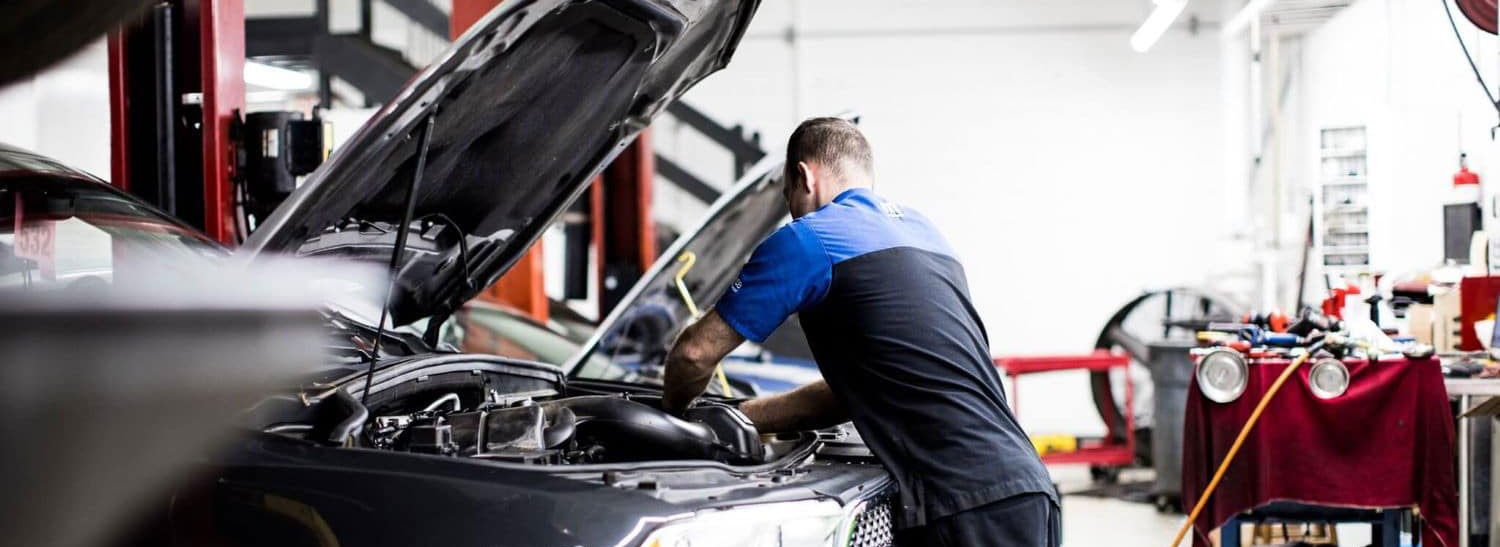6 Signs of a Bad Throttle Body Actuator

Your vehicle's throttle body actuator ensures smooth engine performance and efficient fuel delivery. It works as part of the electronic throttle control system to regulate airflow into the engine based on your accelerator pedal input. When this component malfunctions, it can lead to various performance issues that may compromise your vehicle's drivability. At Bournival Jeep, we understand the importance of maintaining your vehicle's health. Below, we'll discuss six common signs of a failing throttle body actuator and how our expert technicians can help.
Reduced Engine Power
A faulty throttle body actuator often reduces engine power, commonly called "limp mode". When the actuator fails, it cannot accurately control the air intake, causing the engine to receive insufficient airflow. This disrupts the air-fuel mixture necessary for optimal performance, leading to a noticeable lack of power when accelerating.
Symptoms to Watch For:
- Difficulty accelerating or maintaining speed
- Sudden drops in power while driving
If your Jeep is struggling to deliver power when you press the accelerator, it's crucial to have the throttle body actuator inspected immediately.
Check Engine Light Activation
Modern vehicles are equipped with advanced diagnostic systems, and the check engine light is one of the most common indicators of a problem. A malfunctioning throttle body actuator can trigger this warning light due to erratic airflow readings or failure to respond to commands from the engine control unit (ECU).
Why This Happens:
- The ECU detects discrepancies in the throttle actuator's position or operation.
- Sensor feedback from the throttle body doesn't align with expected values.
Our service team at Bournival Jeep can perform a comprehensive diagnostic scan to identify the root cause of the check engine light and provide an effective solution.
Unstable or High Idle
If your Jeep's engine is idling erratically or maintaining an unusually high idle speed, it could point to a problem with the throttle body actuator. A malfunctioning actuator may struggle to regulate the airflow properly, resulting in inconsistent engine behavior.
Common Symptoms Include:
- Engine revving excessively at idle
- Fluctuating RPMs when the vehicle is stationary
Unstable idle can affect performance and fuel efficiency, making it essential to address the issue promptly.
Poor Fuel Economy
A bad throttle body actuator can lead to an incorrect air-fuel mixture, directly impacting fuel efficiency. When the engine receives too much or too little air, it burns more fuel to compensate, reducing miles per gallon and increasing your overall fuel costs.
Signs of Decreased Efficiency:
- Frequent trips to the gas station
- Decrease in fuel mileage despite normal driving habits
If you've noticed a drop in your Jeep's fuel economy, let our skilled technicians assess the condition of your throttle body actuator and recommend repairs.
Throttle Response Issues
Poor throttle response is one of the most obvious signs of a failing throttle body actuator. This issue can manifest as a delay when pressing the accelerator or inconsistent engine performance while driving.
What to Look For:
- Hesitation or delay when accelerating
- Jerky or uneven acceleration
Throttle response problems can compromise your driving experience and safety. A properly functioning throttle body actuator ensures smooth acceleration, so addressing any irregularities is essential as soon as possible.
Stalling or Rough Idle
A malfunctioning throttle body actuator can cause your engine to stall or idle roughly, especially at low speeds or when coming to a stop. This occurs because the actuator fails to maintain the necessary airflow for combustion at idle, leading to engine misfires or complete shutdowns.
Key Indicators:
- Engine stalls unexpectedly when decelerating
- Rough or uneven engine idle
Stalling can be both inconvenient and dangerous, particularly in traffic. At Bournival Jeep, we can quickly diagnose and resolve throttle actuator issues to restore your vehicle's reliability.
Why Choose Bournival Jeep for Throttle Body Actuator Repairs?
When it comes to maintaining your Jeep's performance, the team at Bournival Jeep is here to help. Our certified technicians have extensive experience diagnosing and repairing throttle body actuators across a variety of Jeep models. Here's what sets us apart:
Advanced Diagnostic Tools
We use state-of-the-art diagnostic equipment to accurately identify throttle body actuator issues. This allows us to pinpoint the root cause and provide targeted repairs, saving you time and money.
Genuine OEM Parts
At Bournival Jeep, we only use genuine OEM replacement parts to ensure the highest quality and compatibility with your vehicle. When you choose us, you can trust that your Jeep is in good hands.
Expert Technicians
Our technicians are factory-trained and highly skilled in Jeep maintenance and repair. Whether you drive a Jeep Wrangler, Grand Cherokee, or Compass, we have the expertise to get the job done right.
Exceptional Customer Service
Your satisfaction is our priority. From the moment you walk into our service center, you'll experience friendly, professional service designed to meet your needs.
Schedule Your Service Appointment Today
If you suspect your throttle body actuator may be failing, don't wait until the problem worsens. Contact Bournival Jeep to schedule a diagnostic appointment. Our team will inspect your vehicle, identify any issues, and provide the repairs needed to keep your Jeep running smoothly.
FAQs About Throttle Body Actuators
How Long Does a Throttle Body Actuator Last?
With proper maintenance, a throttle body actuator can last up to 150,000 miles or more. Regular inspections and cleaning can help extend its lifespan.
Can I Drive with a Bad Throttle Body Actuator?
While driving with a malfunctioning throttle body actuator may be possible, it's not recommended. Ignoring the issue can lead to further damage and costly repairs.
What Causes a Throttle Body Actuator to Fail?
Common causes include carbon buildup, electrical malfunctions, or wear and tear over time. Regular maintenance can help prevent these issues.
Schedule Service